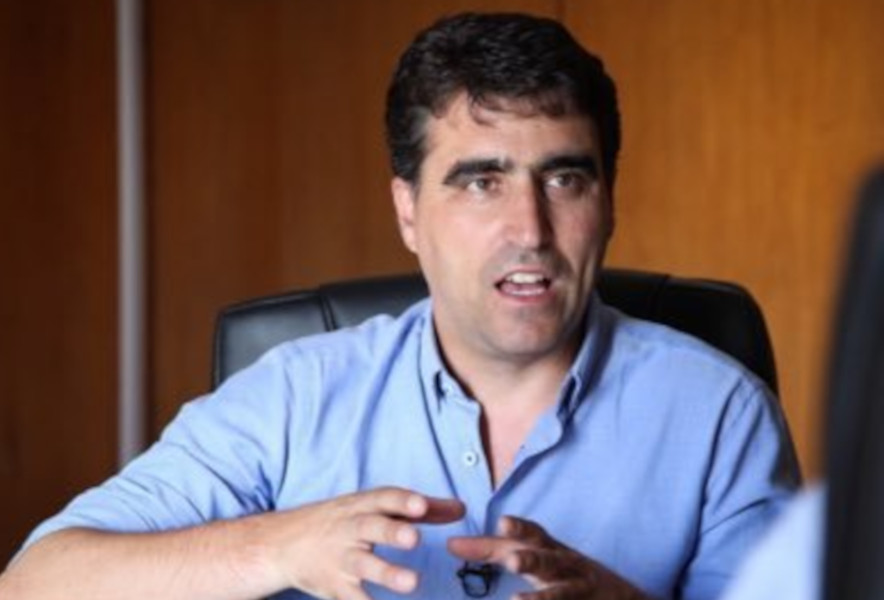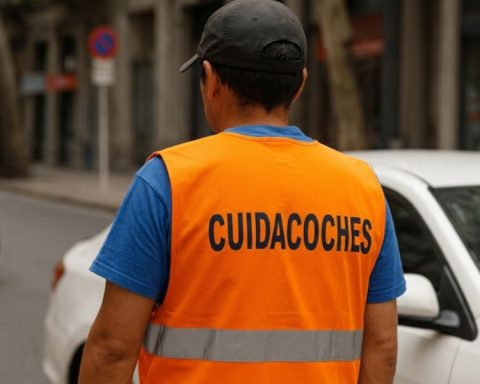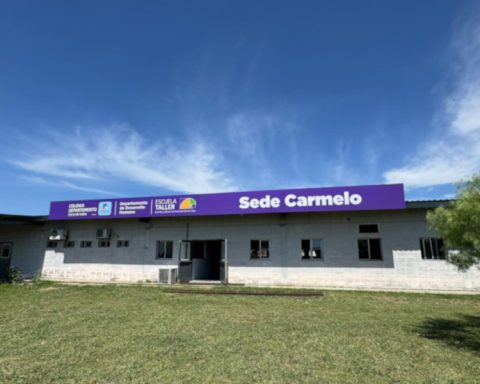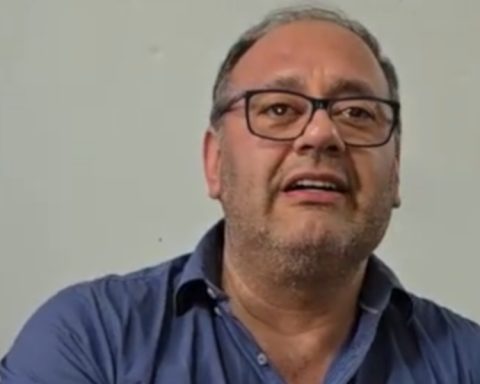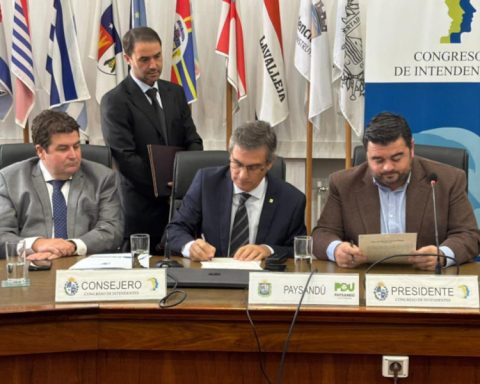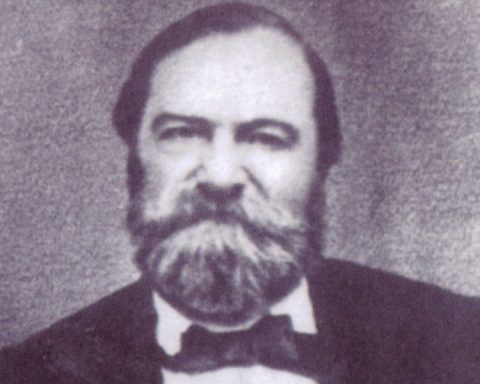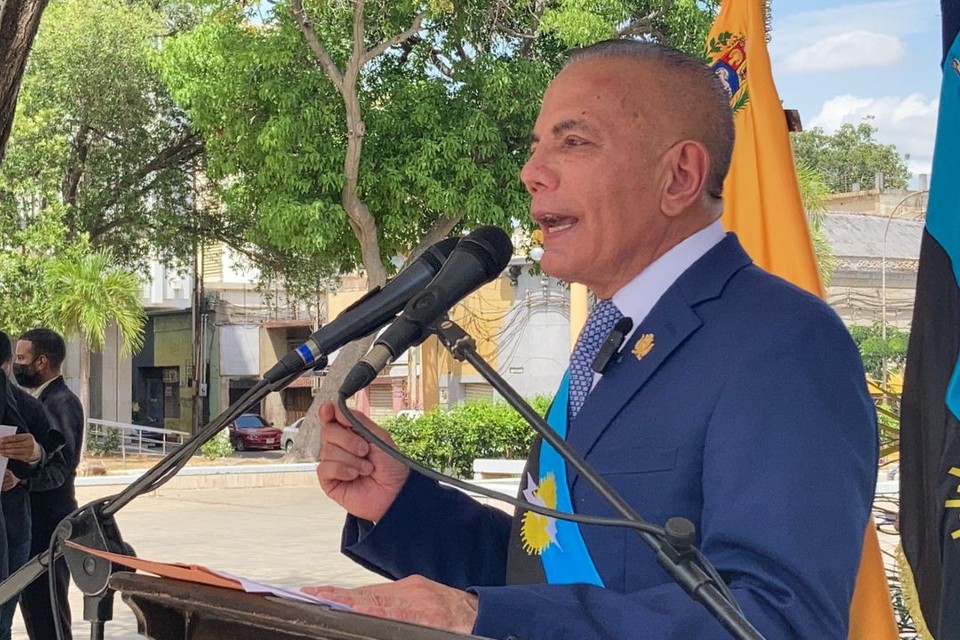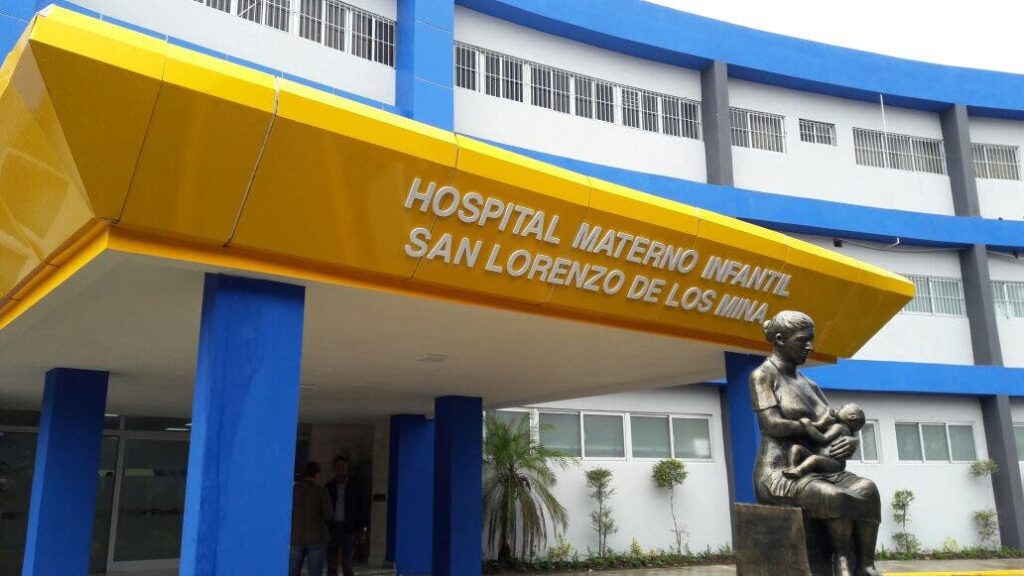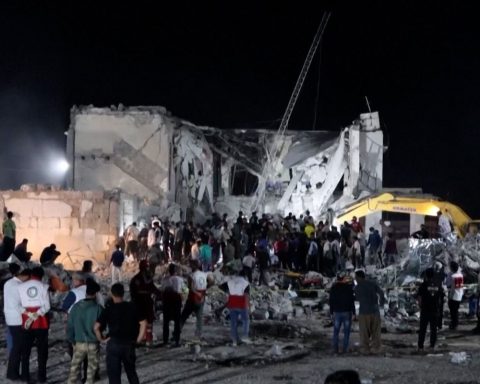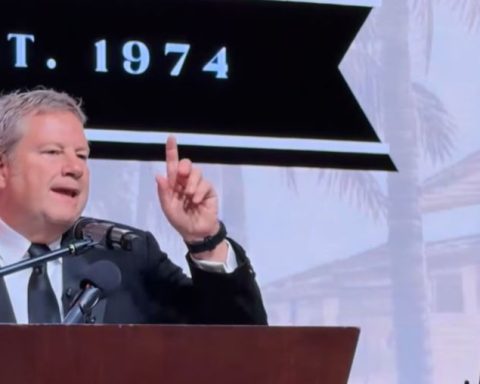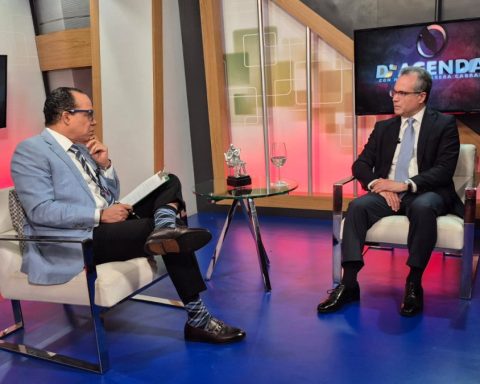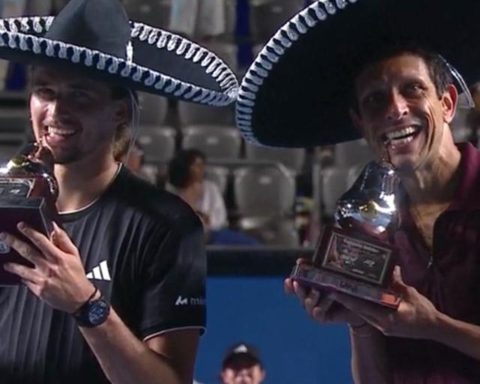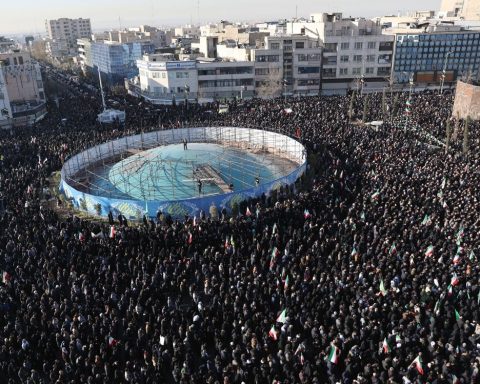Fray Bentos, Paysandú and Salto are commercially having serious difficulties in keeping their businesses open due to low sales due to the permanent crossing of Uruguayans over the bridges to the neighboring country, Mayor Andrés Lima de Salto, who participated in the march, said in dialogue with EL ECO. .
-What is the situation of Uruguayan cities with bridges with Argentina?
-The coast is seriously affected by prices of up to 186% less in Argentina than in Uruguay. Coastal trade can’t take it anymore. Of all the announcements made by the government for the coast, the only thing applied is the Imesi discount, but it is not effective. Here the liter of fuel is above 50 pesos and in Argentina it is bought at 23 and 24 pesos, even with the Imesi discount there is more than 25 pesos difference, it is the only measure that the government took.
For tourism, discounts were established for foreigners who enter, and very few Argentines are seen. What moves is with internal tourism, and we ask that the VAT discount is also applied to promote internal movement.
It has been five months since Salto’s commercial sector presented proposals to the government and there is still no news of what measures it is going to take.
– What are these proposals to improve competitiveness?
-There are several. We propose micro-importation, it consists of creating a legal framework so that small and medium-sized enterprises, small merchants, can import products from the basic basket from Argentina, according to a limited list that is drawn up, so as not to affect the national industry, and that they don’t bring half Argentina to Uruguay. For the micro importation, the merchant would have to present the invoice, the documentation of origin of the merchandise when entering Uruguay, and pay a 3% tariff that would go to the national government, so he would have an income that he does not have today.
Another point is that a monthly or annual limit be established on the number of products to be imported.
Zero VAT had already been requested by the Shopping Center for the products of the basic basket, but there was no response.
There are experiences of micro-importation, for example, in Rivera the customs office is 5 kilometers before the city, there is an avenue there, here we have a river. In Rivera, the Uruguayan and Brazilian merchant buys on one side or the other, without limitations. It is an experience that is not the one we are proposing for the coast, but something similar with caps both in quantity and type of products of the basic basket. We base ourselves on the experience of Rivera and Santa Ana, and Río Branco and Yaguarón in Cerro Largo.
-And how is the services sector, and professionals?
-It is very common, for example, that people cross to Argentina to see an eye doctor, first because of the costs and second because of the delays. Here at ASSE (State Health Services Administration) when you ask for an appointment they give it for five or six months and at the mutual insurance company for two months. People cross the bridge and have an eye doctor the next week and the cost is less in every way.
Gastronomy is also one of the most affected sectors, it fell by almost 80%. People cross to refuel and stay for lunch or dinner or directly go for a walk to the other side and use the Argentine gastronomic services.
– Where is the big profit because the same package of cookies that here costs 60 pesos in Argentina costs 10 pesos?
-Yes, some must be getting rich. Toothpaste, from the same brand, the same origin, has a big difference in price on one side than the other.
-What are the toll costs to cross into the neighboring country?
-In Paysandú and Salto zero costs, the only ones who pay are freight transport. In Fray Bentos it is different, they charge about four hundred and some pesos to cross. And in Paysandú, those who do not have a car or truck cross by motorcycle or on foot. In Salto and Fray Bentos the only way to cross is by vehicle.
-What is your reading that people travel to buy?
We are an expensive country. Here there is a rather unfair situation, you see vans with stickers for the NO (supporting the LUC) and they cross Concordia and come with the van full to the brim. On the other hand, that worker who fights, who lowered his income or lost his job, does not have a vehicle to go to Concordia to buy cheaper.
Other families must be kept in mind, if they did not cross to buy they would not make it to the end of the month because they have a very complex situation, that is why we never propose zero kilo or five kilos, but rather give the possibility of generating competitive conditions for trade local, there would be a double benefit for business, workers, and families.
